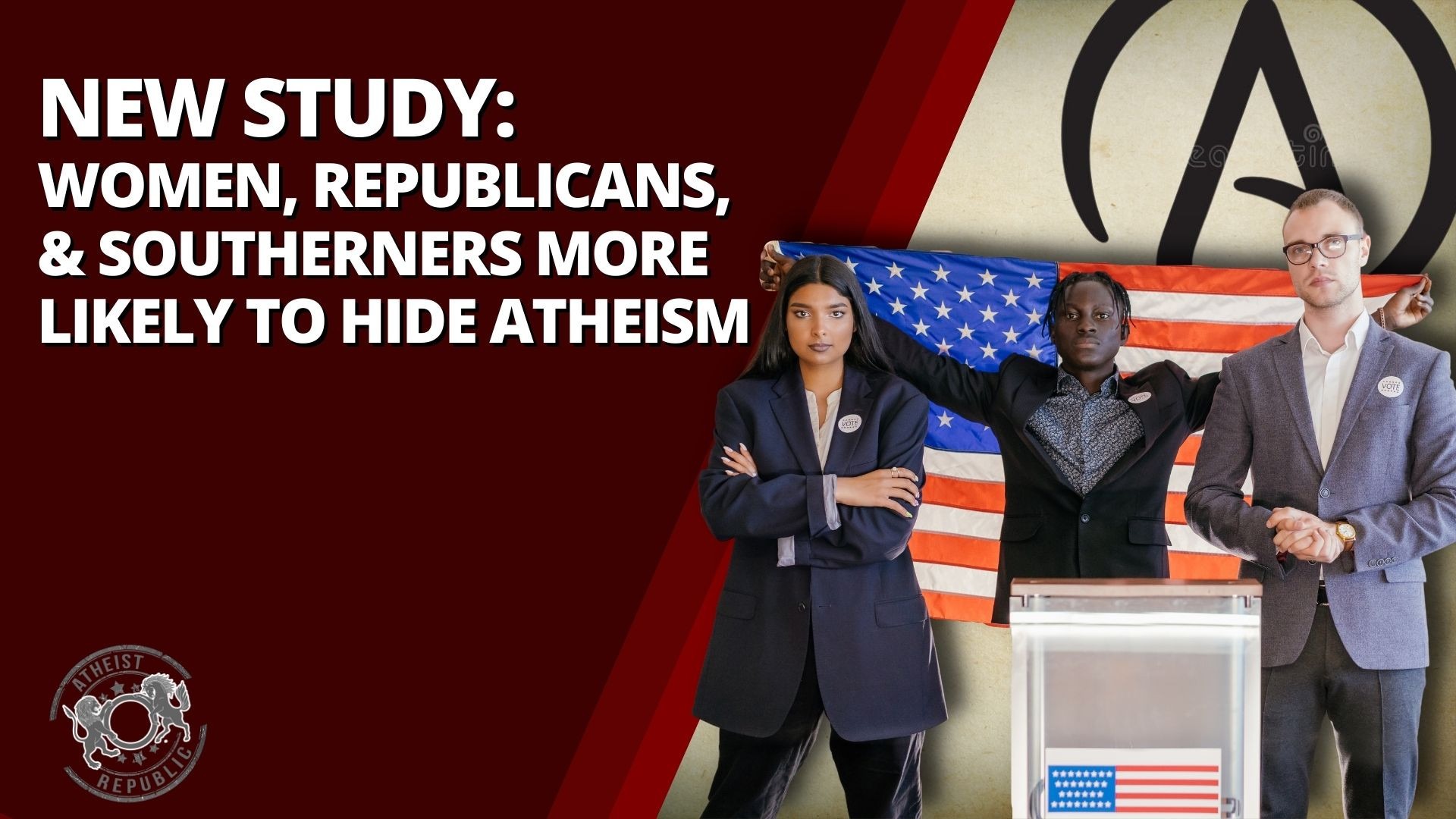
A new study shows that female atheists and those from Republican, Southern, or religious backgrounds are more likely to hide their beliefs. Published in Social Forces, the study revealed findings contrary to what the authors initially believed.
Authors Jacqui Frost and Elaine Howard Ecklund of Rice University and Christopher Scheitle of West Virginia University sought to examine the connection of perceptions of hostility towards an individual's identity.
Instead, what the authors found out was that "atheists in some social locations report higher levels of identity concealment."
In an interview with Religion News (RNS), Frost, the study's lead author, explained that being a member of a marginalized group, individuals "are less likely to take on the additional stigma of being an 'out' atheist." "Marginalized groups, like women, or members of groups that are heavily religious such as Republicans or Southern Americans," Frost added.
According to Pew Research Center, 38% of the 82% of the Republicans are Evangelicals; these are the same Republican sub-set with extreme opposition towards religious diversity.
Southerners are also soaked in a highly religious environment, especially those from the "deep south." States in this region have a unique cultural and historical heritage from the profoundly religious European settlements.
Frost said that "people who are being most discriminated against are also the least likely to hide their identities." However, this may not be true for everyone; groups with "the fewest number of atheists, the atheists among them are less vocal," Frost added.
Using new survey data from a nationally representative sample of US adults, the study revealed that "atheists who feel like social or institutional outsiders are more likely to conceal their identity."
The study also revealed that affirmations to an atheists' identity can "buffer some of the negative effects of atheist stigma."
Ecklund, one of the authors and the director of the Religion and Public Life Program at Rice University, said the study "suggests that openness about one's atheist identity may help combat some of the effects of the stigma they face."
Scheitle, also one of the authors, added that "the ability to gather with fellow atheists may help encourage this openness and provide individuals with a safe place." Atheist organizations can help make it "easier for atheists to choose identity affirmation over concealment, even in the face of perceived hostility."
